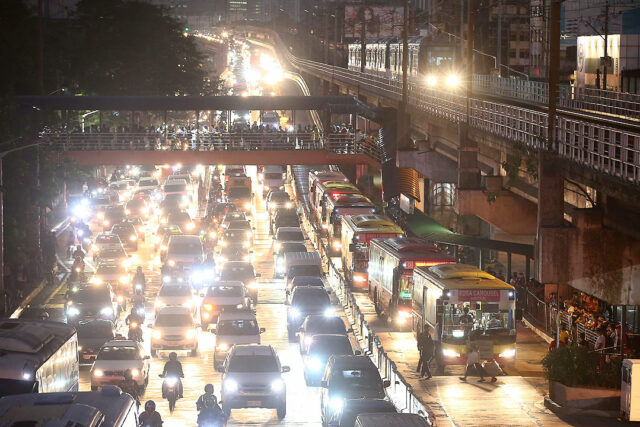There seems to be no dispute that the brutality of Russian troops in its invasion of Ukraine is simply a repetition of what has become its template for war. Brutality is part of Russian war policy as it demonstrated in its invasion of Afghanistan in 1979, the Chechen uprising, the bloody bombing of Aleppo in Syria, and in dealing with its own citizens who courageously take on the role of dissidents and opponents of Putin and his clique.
As Tom Mockaitis wrote in The Hill on April 11 (https://bit.ly/TheHill_Ukraine), “The horrifying atrocities committed by Russian soldiers in Ukraine come as no surprise to military historians. The Russian army and its Soviet predecessor have a long and ugly history of systematic brutality in warfare.”
His narrative states that “following the October Revolution of 1917, the Bolsheviks fought a five-year civil war to consolidate control of the country. The conflict took the lives of perhaps 10 million people, most of them civilians.” Mockaitis wrote that “the Red Army and the Cheka (secret police) employed a strategy of ‘mass terror.’ ‘No mercy for these enemies of the people,’ Vladimir Lenin declared. He described anyone who opposed the revolution or even resisted communism as ‘these dregs of humanity, these hopelessly decayed and atrophied limbs, this contagion, this plague, this ulcer that socialism has inherited from capitalism.’”
Labelling of persons not in agreement with Lenin’s (and Hitler’s and other violent autocrats’ world view), always preceded mass murder and other ways of “persuasion.”
Mockaitis writes that “the Soviet Union entered World War II not as an ally of the west but as Germany’s partner in carving up Poland. Although it did little fighting, the Red Army captured up to 200,000 Polish prisoners which it handed over to the notorious NKVD,” the People’s Commissariat for Internal Affairs or internal security service. Actually, the NKVD was more than a security service. It was originally given the role of conducting police work and supervising and controlling the country’s prison and labor camps.
Mockaitis wrote that “in the spring of 1940, the NKVD summarily executed 21,857 prisoners of war, including approximately 10,000 Polish military officers, in the infamous Katyn Forest (in Poland) massacre in April and May 1940.”
“Red Army atrocities did not end with the fighting,” Mockaitis wrote. “Soviet soldiers raped as many as two million German women, from young girls to old women: an estimated 240,000 of them died of from injuries, venereal disease and suicide as a result. Rapes, also occurred in other occupied countries. When communist leader Milovan Djilas complained to Josdef Stalin about the sexual assaults perpetrated by Soviet troops in Yugoslavia, the premier replied, ‘Can’t you understand it if a soldier who has crossed thousands of kilometers through blood and fire and death has fun with a woman?’”
Stalin’s comment reflects the attitude of enemies of democracy who don’t give any importance to human dignity and human rights. It also brings up the bigger question of rape as a weapon of war. And documenting instances of rape in a war is itself a big challenge.
Aleksandr Kasatkin’s article in Radio Free Europe Radio Liberty (rferl.org), “Part of Russia’s Arsenal: Allegations of Rape by Russian Forces in Ukraine Increasing,” quotes Ukrainian Prosecutor General Iryna Venediktova who said, “According to preliminary information, there have been a lot of rapes — an awful lot. All the cases will be investigated as territory is liberated.”
Kasatkin writes that “in a report published on April 3, New York-based Human Rights Watch (HRW) documented the first reported rape allegations. A 31-year-old woman, who asked not to be identified, from the village of Malaya Roohan, near the eastern city of Kharkiv, said a Russian soldier broke into the basement of a local school where a group of women and children were sheltering on the night of March 13-14. She said the soldier took her to a classroom on the second floor and forced her at gunpoint to undress and perform oral sex on him.
“‘The whole time. He held a gun near my temple or put it into my face,’ she was quoted as saying. ‘Twice he shot at the ceiling and said it was to give me more ‘motivation.’
“The soldier then raped her twice, she said. He cut her face and neck with a knife, then let her go.
“The next day, she and her family walked to Kharkiv where she was given help.
“‘I am lucky to be alive,’ she said.”
Kasatkin wrote that on “the same day, British Ambassador to Ukraine Melinda Simmons posted on Twitter that rape is ‘a weapon of war.’” Simmons continued, “Although we don’t yet know the full extent of its use in Ukraine, it’s already clear it was part of Russia’s arsenal… Women raped in front of their kids, girls in front of their families, as a deliberate act of subjugation.”
More than 50 days since the start of what Russia calls, “special military operations,” thousands of Ukranian soldiers and innocent civilians have perished. Putin is nowhere near his goal of obliterating Ukraine which he considers a “manufactured” state, and surrounding Ukraine so that it becomes a landlocked unviable state. The invasion has united the west and heretofore neutral countries like Finland (once locked in a bloody war with Russia which eventually gobbled up 10-15% of the tiny country) and Sweden have made known their desire to join NATO.
This development, an unwanted consequence of the war for Putin, simply shows that the former KGB operative did not properly analyze the whole situation and the different directions the war could take. The conflict also tends to reveal that Putin is not really interested in Russia’s national interest but his personal survival.
It is becoming increasingly clear that the war is meant to distract the attention of Russians who are becoming increasingly dissatisfied with his regime despite surveys Putin has commissioned that show overwhelming approval of his policies. One school of thought, however, is that Putin does not need the support of the populace for his survival — all he needs to do is to continue squelching and eliminating all forms of dissent. How to get off that tiger, represented by eventual widespread dissent will be his serious problem, which is the same dilemma that all dictators and autocrats have until they are violently eliminated or banished.
The Biden administration continues to support Ukrainian President Volodymyr Zelensky. The US security assistance program has provided $2.6 billion out of the total commitment of $3.2 billion. Russia’s economy is suffering and the rest of the world including America is experiencing inflationary pressures as gas prices go up while ironically GDP continues to rise and unemployment is at a low 3.6%.
The Philippines is expected to suffer similar economic difficulties, especially as the banking system becomes more nervous at the ability of borrowers to pay back loans as the former similarly become compromised as receivables pile up.
The challenge is indeed formidable. It will become even worse with know-nothing, do-nothing and ambitious officials who want to lord it over the country.
Philip Ella Juico’s areas of interest include the protection and promotion of democracy, free markets, sustainable development, social responsibility and sports as a tool for social development. He obtained his doctorate in business at De La Salle University. Dr. Juico served as secretary of Agrarian Reform during the Corazon C. Aquino administration.











